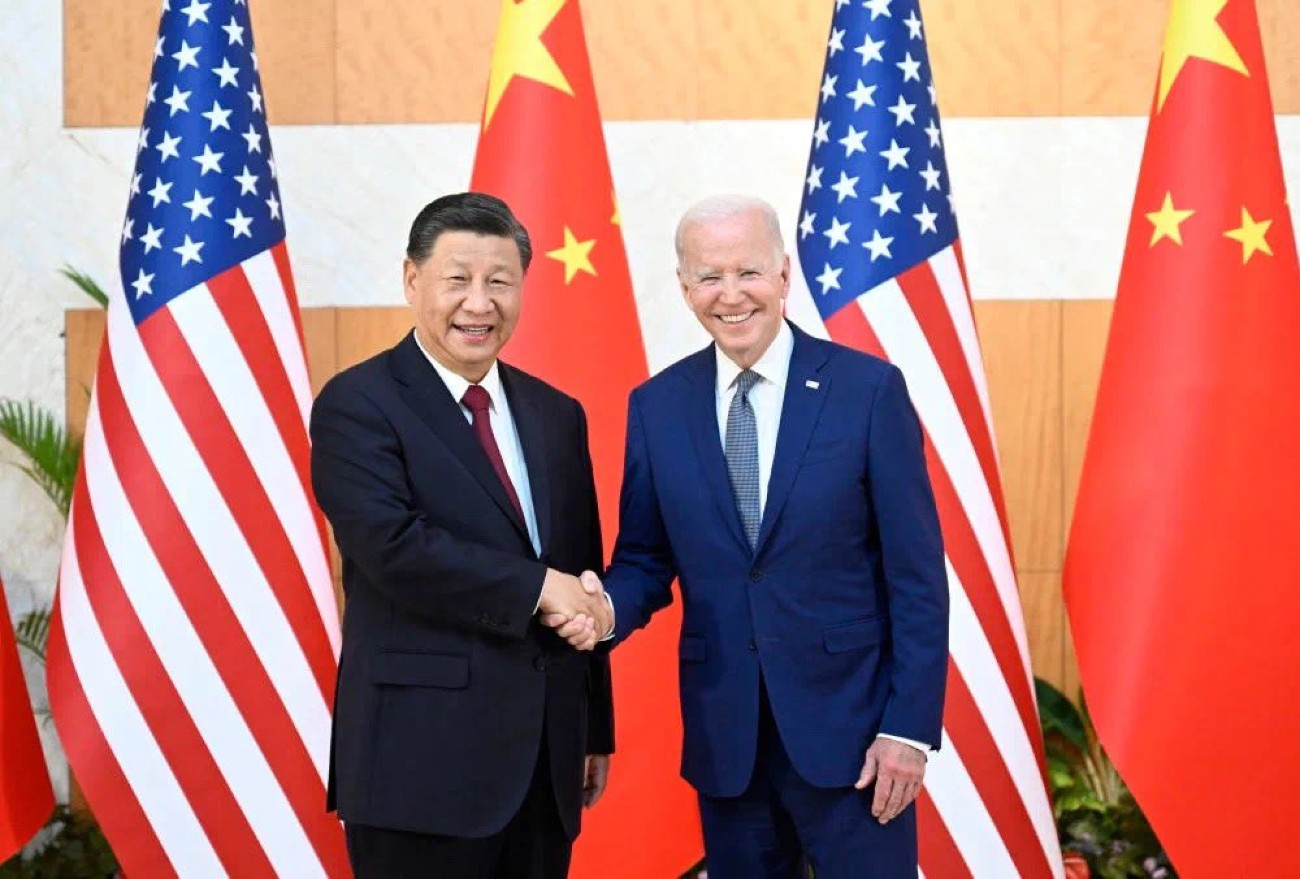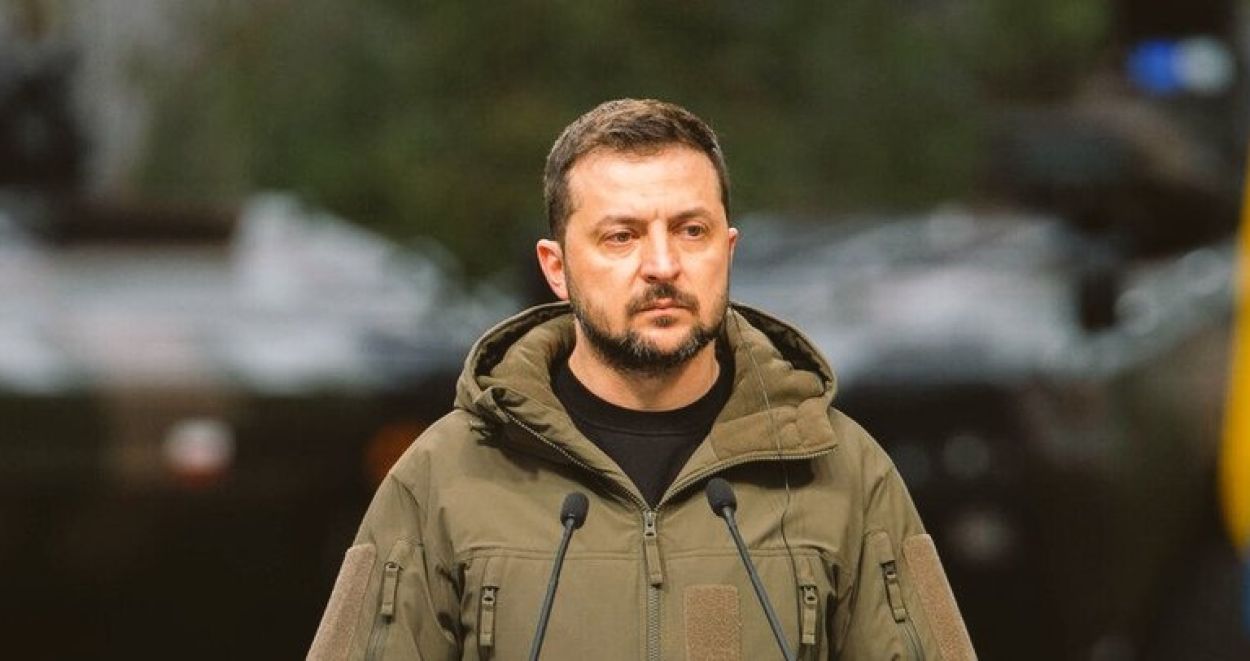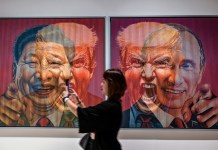US federal officials claim to have apprehended an Air Man who is believed to have played a significant role in leaking classified US intelligence dealing with government secrets about the Ukraine war.
These were leaked early this month and carried out on social media, providing an insight into what Washington believed Ukraine’s weakness in recapturing territories currently occupied by Russia.
The apprehended is a 21-year-old air national guardsman named Jack Teixeira, a member of the intelligence wing of the Massachusetts Air National Guard.
Is Jack Teixeira an “antiwar whistleblower? The US public opinion seems to be divided on this question. The “liberal intelligentsia,’ which includes the mainstream US media, paints Teixeira to be “white, male, Christian, and antiwar.” And that makes him “an enemy to the Biden regime” for them.
But others think that Teixeira and the forces behind him might have done something good by letting Americans know that the Biden Administration’s obsession with Ukraine could lead to what would be America’s worst geopolitical nightmare – the solidification of the Sino-Russian axis and the Chinese invasion of Taiwan that could shake the foundation of a stable Indo-Pacific, whose global significance is much higher than the war in Ukraine.
Of course, most US citizens are still believed to be behind President Joe Biden in supporting Ukraine and its war efforts against Russia. But their overall number is gradually declining if the latest public opinions are any indication.

Even the bipartisan political support for Ukraine in the US is now showing some cracks. More and more Republicans now think that the war in Ukraine is not a major threat to the US.
One poll showed, “In March 2022, half of US adults, including nearly identical shares of Republicans and Democrats, saw Russia’s invasion of Ukraine as a major threat to American interests. By this past January, that figure had declined to 35% among Americans. While there was a decline in both parties, the decrease among Republicans was steeper: The share of Republicans who perceived the invasion as a major threat to the US fell from 51% around the start of the war to 29% in January 2023.”
As Republicans have become less likely to see the war as a major threat to the US, they have become more likely to say, “The US is providing too much support to Ukraine.” The share of Republicans expressing this view increased from 9% in March 2022 to 17% in May 2022, 32% in September 2022, and 40% in January 2023.
Significantly, even those Republicans supporting President Biden for the American help to Ukraine are now changing their views. Early this week, Florida Governor Ron DeSantis, the most formidable rival of former President Donald Trump for the party nomination as the Presidential candidate, made it clear that he was aligned with those wary about continuing to provide aid.
“While the US has many vital national interests — securing our borders, addressing the crisis of readiness within our military, achieving energy security and independence, and checking the economic, cultural, and military power of the Chinese Communist Party — becoming further entangled in a territorial dispute between Ukraine and Russia is not one of them,” DeSantis wrote recently.
It may be noted that since the war began in February last year, the Biden Administration and the US Congress have directed nearly $80 billion in assistance to Ukraine, which includes humanitarian, financial, and military support. Dozens of other countries, including most North Atlantic Treaty Organization (NATO) members and the European Union, also provide large aid packages to Ukraine.
But as the war is dragging on with no clear winner (In fact, nobody is prepared to guess who will be the eventual winner), the military shortcomings of both parties have come to the surface. The war has also exposed the depletion of supplies of critical munitions, something every country, including the United States, is struggling to replenish with scaled-up weapons manufacturing.
As John Daniel Davidson, a Senior Editor at ‘The Federalist,’ points out, “What is the plan if (and really, when) Beijing decides to invade Taiwan? No one seems to have an answer — or even seems willing to acknowledge a problem.
“Nor do our political leaders have an answer to the increasingly obvious reality that US sponsorship of Ukraine is pushing Moscow into Beijing’s arms and helping to accelerate a China-led coalition to challenge the US dollar reserve currency status and usher in a truly multi-polar world.
“Meanwhile, economic uncertainty prevails here at home, with inflation continuing to hit American families hard, US banks failing, and talk of an impending recession setting markets on edge.”
And Davidson raises a question that the EurAsian Times had pointed out some months back. And that question is if the billions of aid to Ukraine are properly utilized by its rulers, otherwise notorious for corruption.
“There’s the narrower question of what the American taxpayer has been purchasing with all this largesse. The Ukrainian state is famously corrupt, which hasn’t changed under President Zelensky and might be far worse now, given the sheer volume of US dollars washing through the country. Is Ukraine going to emerge from this as a functioning democracy allied with the West, a reliable partner, and not a dangerous welfare case? Is there any reason to think that will be the case so far?” asks Davidson.

Against this background, a well-prepared perspective based on the interactions with leading experts by the influential US think-tank RAND Corporation has suggested: “How to Avoid a Long War.” It says that a protracted Ukraine war is not in the interest of the United States.
RAND says that Biden’s principal objective of Ukraine regaining its lost territories from Russia may not be appropriate as it is too narrowly focused on one dimension of the war’s trajectory.
“Territorial control, although immensely important to Ukraine, is not the most important dimension of the war’s future for the United States. We conclude that, in addition to averting possible escalation to a Russia-NATO war or Russian nuclear use, avoiding a long war is also a higher priority for the United States than facilitating significantly more Ukrainian territorial control.
“Furthermore, the US ability to micromanage where the line is ultimately drawn is highly constrained since the US military is not directly involved in the fighting. Enabling Ukraine’s territorial control is also far from the only instrument available to the United States to affect the trajectory of the war.
“We have highlighted several potentially more potent tools Washington can use to steer the war toward a trajectory that better promotes US interests. Whereas the United States cannot determine the territorial outcome of the war directly, it will have direct control over these policies,” write Samuel Charap and Miranda Priebe in the RAND perspective.
They highlight the importance of President Biden saying recently that the war in Ukraine will eventually “end at the negotiating table.” And this will be possible if the United States shifts the war dynamics, “clarifying its plans for future support to Ukraine, making commitments to Ukraine’s security, issuing assurances regarding the country’s neutrality, and setting conditions for sanctions relief for Russia (the last two will take care of the Russian interests.”
The RAND study says that a peace treaty would entail negotiated compromises on some of the core political issues at stake for the two sides. It says that codifying Ukraine’s nonalignment would likely be central for Russia.
Ukraine would want reinforced Western commitments to its security since it does not trust Russia to comply with any agreement. A settlement could cover other issues, such as a reconstruction fund, bilateral trade, cultural matters and freedom of movement, and conditions to relieve Western sanctions on Russia.
The study, of course, admits that a peace treaty may not result in Ukraine getting back all its lost territories. “But the core outcome would be a return to some degree of normal relations between the former belligerents.
“Importantly, the parties could agree to disagree about the status of certain territories even while reaching terms on other issues. For example, the Soviet Union and Japan normalized diplomatic and trade relations in 1956, but the territorial disputes between Moscow and Tokyo were never resolved.
“A political settlement does not have to resolve all the differences between the parties definitively; it does need to address enough of these differences to improve the broader relationship between the former belligerents qualitatively.”
The RAND Study seems to find many takers in the United States and outside.
- Author and veteran journalist Prakash Nanda has been commenting on politics, foreign policy, on strategic affairs for nearly three decades. A former National Fellow of the Indian Council for Historical Research and recipient of the Seoul Peace Prize Scholarship, he is also a Distinguished Fellow at the Institute of Peace and Conflict Studies.
- VIEWS PERSONAL OF THE AUTHOR
- CONTACT: prakash.nanda (at) hotmail.com
- Follow EurAsian Times on Google News




